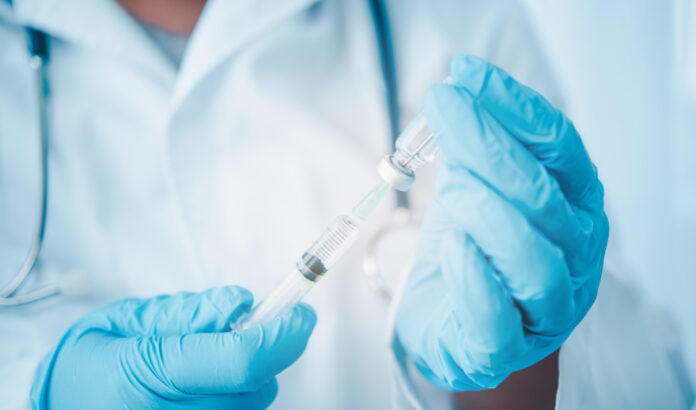DHAKA: Bangladesh’s first homegrown coronavirus disease (COVID-19) vaccine will start human trials next month following ethical approval from the country’s top medical body, its developer said on Wednesday.
Bangavax is a new generation single-dose (messenger) mRNA vaccine that, similar to the Pfizer and Moderna ones, introduces a piece of mRNA that corresponds to a viral protein and triggers an immune response to produce virus antibodies.
Developed by Dhaka-based Globe Biotech Ltd., the vaccine was approved for production by the country’s drug regulator last year.
On Tuesday, the Bangladesh Medical Research Council gave ethical permission to GBL to conduct clinical trials of the vaccine after it had completed tests on monkeys.
Dr. Mohammed Mohiuddin, GBL’s quality and regulatory affairs manager, told Arab News: “If everything goes well, we hope to start the human trial sometime early next month.
“We received permission from the Bangladesh Medical Research Council to conduct the human trial and now we will apply to the Directorate General of Drug Administration early next week for producing the vaccine in our laboratory.”
He noted that the company expected to receive the drug regulator’s approval by the end of next week.
“Our mRNA vaccine performed very well during animal trials and generated 100 percent efficacy, which neutralized the COVID-19 virus within one week of inoculation. This is a single-dose vaccine, and similar technology was used for producing the Pfizer and Moderna vaccines,” he added.
While the Pfizer and Moderna jabs need to be frozen, posing storage and logistical challenges in developing countries, Bangavax can be kept for 30 days in temperatures below 4 degrees Celsius.
Trials conducted by its producer have so far shown its effectiveness against 11 strains of COVID-19, including the highly contagious delta variant which earlier this year wreaked havoc in South Asia.
Bangavax’s first human trial will be conducted with 64 volunteers at Bangabandhu Sheikh Mujib Medical University in Dhaka over a period of 35 days.
Prof. Mamun Al-Mahtab Shwapnil, the university’s hepatology department chairman who will act as principal investigator for the trial, told Arab News: “The volunteers will be under observation at hospital for a couple of days to see if any side effects are there. Sufficient preparations are there to meet any kind of emergency situation.
“We are expecting to complete phase one of human trials by the end of December. Later on, phases two and three will be conducted with a larger sample size of more than 100, and 35,000 people, respectively. If all goes well, we hope to bring the vaccine to market by the middle of next year,” he said.
At every stage of the trial, GBL will be expected to share its results with the World Health Organization.
Prof. Dr. Muzaherul Huq, former WHO regional adviser in Dhaka, told Arab News: “An expert committee of the WHO will analyze the findings and if the committee is satisfied with the research outcomes, only then will it recommend the emergency use authorization.
“When the vaccine gets permission for local use, any other countries in the world may import it for their citizens.”
Sign in
Welcome! Log into your account
Forgot your password? Get help
Password recovery
Recover your password
A password will be e-mailed to you.

